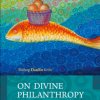The Njegoš Fund for Serbian Studies at Columbia University was established in 1997 to promote language instruction and cultural studies at the University. The Serbian language program at Columbia, one of the oldest in North America, dates back to before World War I, when Mihajlo “Michael” Pupin was a famous professor at Columbia. We at the University have tried to uphold this tradition by improving and expanding the program of instruction in Serbian studies and events for the community.
Instruction: During the last calendar year, 63 students enrolled in a score of International Affairs, Language and Comparative Literature, and Political Science courses that were offered in the South Slavic area. The figure includes language classes, taught now by Dr. Aleksandar Bošković, who was hired to replace Dr. Radmila Gorup; he also taught a course on Serbian culture. Using Njegoš funds, Dr. Gorup was brought back this fall to teach her signature course, “Within and Beyond Empires: Literatures of South Slavs.”
In addition, for the first time the Njegoš Fund has announced a postdoctoral research fellowship in Serbian studies for the academic year 2016–17. We hope that the fellow will help us expand teaching to include history and/or political science.
Cultural Program: In addition to supporting instruction, the Fund has been used this year, as in previous years, to support a rich and active program of extracurricular lectures, conferences and special events. The program in 2015 included:
January 23, 2015: “The Serbian Medieval Cultural Legacy”: Exhibit and Celebration. Remarks by Vesna Petković, author of Serbian Medieval Cultural Heritage (2015).
March 6, 2015: Conversation with Vladimir Pištalo, author of Tesla: A Portrait with Masks (2015).
March 4, 2015: Lecture by Dr. Vladislav Beronja, University of Michigan on “Can We Critically Redeem Turbo-Folk and Should We Even Try?”
May 1, 2015: Professor Svetlana Rakić, Franklin College (Franklin, Indiana), delivered a lecture on “Art and Reality: Serbian Perspectives.”
September 25, 2015: Screening of the film Evaporating Borders and conversation with the director Iva Radivojević.
October 22–23, 2015: Two-day conference “Through the Transnational Lenses of Dubravka Ugrešić” organized by Prof. Aleksandar Bošković. Participants: Zoran Milutinović, University College London, Eva Karpinski, York University, Tatjana Aleksić, University.of Michigan, Nataša Kovačević, Eastern Michigan University, Aleksandar Mijatović, University of Rijeka, Vladislav Beronja, University of Michigan, Radmila Gorup and Alan Timberlake, Columbia University.
November 17, 2015: Lecture by Prof. Svetlana Tomić, Alpha University (Belgrade), on “Using Neglected Literary Texts to Understand the Evolution of Serbian Society.”
November 18, 2015: A lecture by Prof. Aleksandar Pavlović, University of Graz, on “Figuring out the Enemy: Re-imagining Serbian-Albanian Relations.”
November 24, 2015: “Theorizing Culture of Transition in (Post)-Yugoslav Space” — lectures by Prof. Tatjana Rosić, Singidunum University (Belgrade) and Prof. Marija Grujić, Freie University (Berlin).
Several events are planned for 2016. These include a conversation with Dr. Krinka Vidaković-Petrov, former Ambassador of Yugoslavia to Israel and author of Serbs in America (2015); the conversation is scheduled for February 5, 2016.





